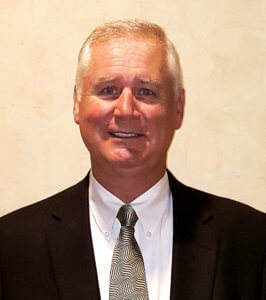By Rick Pendykoski
According to recent research by the National Institute on Retirement Security, 95% of adults in the age group of 21 and 32 years aren’t saving for retirement. Young CPAs are no exception.
As a young CPA, you may feel that your golden years are far-fetched. But if you want to have a financially healthy retirement, you should start saving now. Saving during the first 15 to 20 years of working helps grow the retirement income to an astounding amount due to the compounding interest.
Below are some of the best practices you can adopt for financial health into retirement:
- Evaluate your budget and plan early. Setting a budget and sticking to it is the smart way to manage your finances. Track all your fixed expenses to get an accurate idea of how much you need every month, where to cut back and how much you can save. You can use budgeting and tracking expenditures apps that are easily available online to help you set the budget and stick to it.

- Make use of resources available. Use retirement calculators to get an estimate of how much you’ll need when you retire at different ages. These calculators, which are available online, consider life expectancies, inflation, investment yields, etc. while calculating how much money you’ll need at retirement. You can also consult a financial planner to plan your retirement and give investment advice.
- Max out your 401(k).Contribute the maximum amount and take full advantage of employer matching your contribution. This is ‘free money,’ which will grow uninterrupted over time to give you good returns at retirement.
- Invest your money wisely. If your idea of saving is just letting the money sit in your bank account, then it has very little opportunity to grow. Diversify your investment portfolio—invest in the stock market—it is the best way to save when you don’t need to use the money right away.
- Create an emergency cash fund.You can have everything planned for your retirement, but if you aren’t prepared for an emergency, it can throw a wrench into your retirement plans. So, make sure you set aside an emergency fund.
- Consolidate debt. If you have a student loan, credit card balances, or an auto loan, consider consolidating your multiple debts with a debt consolidation loan taken at a lower interest rate. This will not only help in reducing your debt and paying it off sooner, it will also help you save money on interest. As a financial rule of thumb, keep your debt ratio below 30%.
- Pay your bills on time. This is an excellent way to inculcate good financial habits. Paying on time helps boost your credit score and increase your creditworthiness. On the other hand, paying your bills late attracts penalty, which means a waste of money and a negative impact on your credit score.
- Save not just on small things, consider saving on big things too. Don’t put too much focus on saving on small things like coffees, dinners, etc. Instead, consider saving on big-ticket items that are going to have a massive effect on your finances in the future. For example, if you get a bonus or a pay raise, don’t spend it to buy a new car, save it and pretend it never existed.
Retirement is a wonderful phase of life—you can look forward to doing what you cannot do right now. If you want to make your retirement an opportunity to realize unfulfilled dreams and goals, finance shouldn’t be a concern. The tips above will help you get started on your retirement planning and save enough to enjoy the money at retirement.
 Rick Pendykoski is the owner of Self Directed Retirement Plans LLC, a retirement planning firm based in Goodyear, AZ. He has over three decades of experience working with investments and retirement planning, and over the last 15 years has turned his focus to self-directed accounts and alternative investments. Rick regularly posts helpful tips and articles on his blog at SD Retirement as well as Business.com, SAP, MoneyForLunch, Biggerpocket, SocialMediaToday and NuWireInvestor. If you need help and guidance with traditional or alternative investments, email him at [email protected].
Rick Pendykoski is the owner of Self Directed Retirement Plans LLC, a retirement planning firm based in Goodyear, AZ. He has over three decades of experience working with investments and retirement planning, and over the last 15 years has turned his focus to self-directed accounts and alternative investments. Rick regularly posts helpful tips and articles on his blog at SD Retirement as well as Business.com, SAP, MoneyForLunch, Biggerpocket, SocialMediaToday and NuWireInvestor. If you need help and guidance with traditional or alternative investments, email him at [email protected].